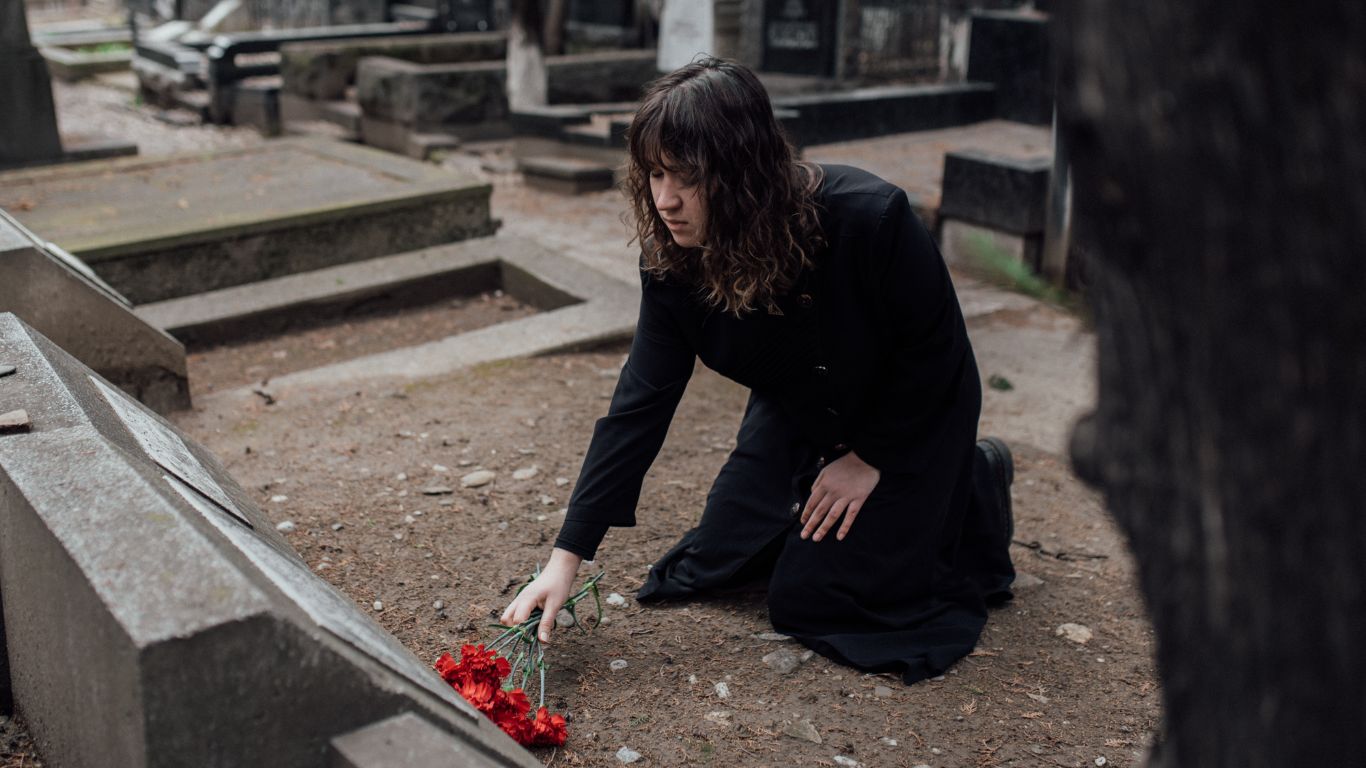
There are two certainties in life, death and taxes. Both can stir many emotions. Although we are in tax season, this column is about facing death, the grief it brings and how it can affect families. Death can bring a myriad of emotions when you least expect it. It can stir up old feelings that have been intentionally buried deep down. It doesn’t matter your gender, religious beliefs (or not), race, ethnicity or culture; death will affect you in some way.
The recent death of my father has brought about emotions I did not expect to experience. At first it was a relief for him because he is no longer in pain and no longer feels the disappointment of not getting better. This has gone on for well over a year and half. It is hard to watch someone remain bedridden and declining so he is unable to care for himself. I assume the false hope was even harder on him.
I am now feeling angry about many things. Things that occurred in my childhood as well as things that have occurred in my adulthood. Some I had control over and have taken full accountability for, while others just happened to me. I am learning more and more each day how important faith is in navigating grief and loss.
The Struggles of Families Before and During the Dying Process
When people are not properly prepared for sickness, a tragic accident or even death, it can cause great challenges for the rest of the family. If you are prepared and do not communicate your preparations or preferences, it can rip the family apart. It is very difficult for family members to decide on the same course of treatment when medical wishes go unspoken. The results of those decisions, especially when it is not a consensus, can cause a rift in the family.
These events can cause great emotional as well as spiritual challenges. Everyone does want what is best for their loved one, but many family members have a different understanding of what “best” is. Family members, when death is drawn out, live in anticipatory grief and the pain of watching a loved one decline. There can be guilt along with that grief, especially when they feel they could have stopped it or limited it.
The burden of making medical decisions is great without prior discussions.
Proverbs 15:22 reads, “Plans fail when there is no counsel, but they succeed when advisers are many.” (usccb.org) When family members are excluded so one or a couple can control the situation, it puts undue strain on the rest of the family. It also creates a heavy burden for those in control.
Then there are the practical and legal difficulties that could occur.
Every situation and every family is different. Oftentimes when the sick or dying are given unrealistic hope, they will not direct their personal business in an upfront and ethical way. When they refuse to hand over authority to pay bills, sign checks etc because they believe they will get better, it causes undue stress on the family members who have to ensure things are taken care of.
When you are well and can think clearly is the time for end-of-life planning. This includes wills, advanced directives and conversations. Family should not have to guess if you want a feeding tube, to be resuscitated and many other extreme procedures. The guilt and stress of making these choices for a loved one can cause stress for years to come. Remember 1 Timothy 5:8, “And whoever does not provide for relatives and especially family members has denied the faith and is worse than an unbeliever.” (usccb.org) This is not just about money. Read about what it means to gain the whole world just to lose your soul.
The Impact of Death on Loved Ones
My mother died two years ago. It was very hard. She was diagnosed with a terminal illness and given an expectation of years left. Her death process was long, drawn out and time consuming. My father, who still had a zest for life, mourned appropriately for him, and then began to live independently. We knew he was lonely and we as children could not fill that void. When he became sick and truly unconscious after being in the hospital, it was very hard on all five of us surviving children, our spouses and our children. It was especially hard since he was independent one minute and unable to feed himself the next. Even though there were many tests done, there were no conclusions as to the cause. I still wonder if he knew, but chose not to share it with us.
There is a unique grief of adult children losing their final parent. There are feelings of orphanhood and loss of generational connection. For some comfort, read and pray
Psalm 34:18, “The righteous cry out, the LORD hears and he rescues them from all their afflictions.” (usccb.org) Different people experience and process grief differently. This is even true among adult children. Death often brings up the past and siblings may not understand since the past is often different for each sibling.
Coping with Grief and Learning to Move Forward
Remembering that each person experiences grief differently, each person needs to find the best way to deal with it. Sometimes it involves past hurts and even exclusion from family. No one knows and can truly understand how you feel. It doesn’t make your feelings less real or unjust. When needed, reach out for support. It is good to have a non-family member for support so that other emotions are not brought into the equation. Don’t shy away from professional help like therapy, counseling or grief support groups. It is better to manage feelings with support rather than alone.
Include faith, prayer, and community in the healing process. Sometimes hurts go deeper than death. God is a never ending supply of love and support. Turn to time in prayer, time in church and time with a supportive church community. Take solace in Matthew 5:4, “Blessed are they who mourn, for they will be comforted.” (usccb.org)
Biblical Perspective on Death and Eternal Life
Death is hardest on the living. Most of the rituals and customs focus on the living. There is nothing greater and more peaceful than eternal life. We know that earthly death is imminent as stated in Ecclesiastes 3:1-2, “There is an appointed time for everything, and a time for every affair under the heavens. A time to give birth, and a time to die;” (usccb.org)
There is a place waiting for you as you see here in John 14:1-3, “Do not let your hearts be troubled. You have faith in God; have faith also in me. In my Father’s house there are many dwelling places. If there were not, would I have told you that I am going to prepare a place for you? And if I go and prepare a place for you, I will come back again and take you to myself, so that where I am you also may be.” (usccb.org)
There is hope in Christ’s promise of the reassurance of eternal life through faith. Know that there will be no more death and no more pain as in Revelation 21:4, “He will wipe every tear from their eyes, and there shall be no more death or mourning, wailing or pain, [for] the old order has passed away.” (usccb.org) This scripture verse always reminds me of the song by Chris Tomlin, I Will Rise. This is my perfect farewell song.
Encouragement to Plan and Prepare
Remember that it is important to discuss final wishes. The will and earthly belongings are important, but I have witnessed first hand how unknown final wishes have torn families apart. Always be realistic and entertain worse case scenarios. We don’t know what life has in store for us or what our death will do to the living. Have open conversations about medical and spiritual wishes. As James 4:14 reminds us, “you have no idea what your life will be like tomorrow. You are a puff of smoke that appears briefly and then disappears.” (usccb.org)
Find peace in God’s plan. Trust in His timing and sovereignty over life and death. This is not in our control, nor should it be. Comfort in 2 Corinthians 1:3-4, “Blessed be the God and Father of our Lord Jesus Christ, the Father of compassion and God of all encouragement,
who encourages us in our every affliction, so that we may be able to encourage those who are in any affliction with the encouragement with which we ourselves are encouraged by God.” (usccb.org)
Faith, planning, and support in times of loss are crucial. Seek comfort in scripture, prayer, and community. Most importantly, start conversations with family and trust God’s promise of eternal life, before you are required to.













